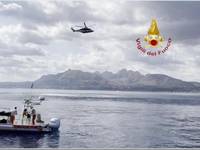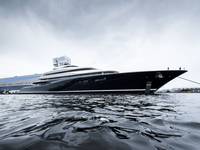Midsummer Meddling
France’s attitude to superyachts these days is rich with ironies. The official talk is of an era of redressement, or “putting right” the former state of affairs including public finances. But that has so far not translated into a reversal of its policy of VAT exemption for commercial yachts (FCE) – at least not officially. National austerité or riguer aside, the European Commission has demanded the change and is suing France at the European Court of Justice to enforce it.
Meanwhile, this is proving to be a busy summer in the Mediterranean for the Douanes, France’s customs and excise service. Beyond the usual seasonal wave of excise-related checks on yachts for the fuel, alcohol and tobacco they take, some rather unlikely questions have emerged to distract them and their targets.
Most of these questions tend to be of the VAT and customs kind, which is ironic in a regime that is supposed to have scrapped all entry and exit formalities for commercial yachts and which is still supposed to exempt all their hiring and charter activity from VAT.
• Where and when were you registered for VAT in the EU? (Not in France, of course).
• Did you import your yacht into another member state and do you have the official Single Administrative Document including the telltale IM designation to prove that?
• Do you have proof of having accounted for VAT following importation?
• If you made an intra-EU acquisition of your yacht, did it sail to the member state which issued the VAT number under which you made the acquisition?
• How do the dates of the yacht’s delivery to you, of its registry in your name with a flag state, of first sailing and of issue of any VAT paid evidence by another member state cohere?
• And, can you provide the contract for the build or purchase of the yacht, the Bill of Sale, the Certificate of Registry, the Protocol of Delivery and the like to support your explanations?
• If you were incorporated outside the EU but with a business establishment in a member state, what is the timing difference between taking delivery, flagging the yacht, sailing and accounting for VAT?
• And come to fuelling, how did you manage to take duty-free fuel in the “DOM-TOM” (French overseas departments and territories) while registered as a pleasure yacht?
A goner really?
In one sense this inquisition is to be expected. The Douanes and related government agencies are responsible for the management of fiscal, regulatory and enforcement activities at frontier locations. The inward/outward reporting of pleasure craft is part of their function, as is the prevention of smuggling of dutiable or prohibited/restricted goods, not to mention other issues like immigration. Moreover in what is after all a borderless Single Market, the Douanes have a responsibility to other member states of the EU to check VAT and customs compliance and to control the frontier between the EU and countries that are not full members. They do need to carry out checks on documents and persons on board pleasure craft, which is why the relevant laws give officers the necessary powers to stop, board and search a vessel and to ask questions, whatever the vessel’s provenance. So it would be naïve to think that these duties and responsibilities will not go on regardless of any administrative policy dilemmas behind the scenes.
It is just that with France in the current circumstances the cap does not always seem to fit, and she is not best placed to play the yachting VAT compliance officer. The apparent fermeté (toughness) on VAT compliance matters for taxpayers registered in other member states even as she nurses a moribund commercial exemption for yacht is somewhat illogical.
If French territorial waters are open to yachts meeting the FCE rules surely the fact that a commercial yacht owner accessing these waters is registered for VAT in another EU member state should be of no particular consequence to the French taxman doing his checks?
And consider the purely dilatory nature of those other questions about fuel taken in French Polynesia or other “DOM-TOM”, which are not even part of the VAT and customs territory of the EU. This smacks of a little meddling.
Hang on a minute, though. What if the intense goings-on this summer were a harbinger and a curtain rehearsal for the awaited policy change that must surely come soon?
Conventional wisdom is calling the FCE a goner, so the Douanes may as well retrain their officers to start asking again those internal market VAT questions that have been in abeyance these past seven years.
So if you are thinking that the French are onto something and are trialling it out on you then you are probably right. You may be already in the Med or planning to go there: just remember to keep your cool and answer those questions truthfully and courteously.
You are the help to a change, not a hindranc
Yachting VAT Note is prepared by Moore Stephens Consulting Limited and is designed to keep readers abreast of current developments and trends.
For more information, contact:
Ayuk Ntuiabane - Director
[email protected]
www.moorestephensyachts.com




